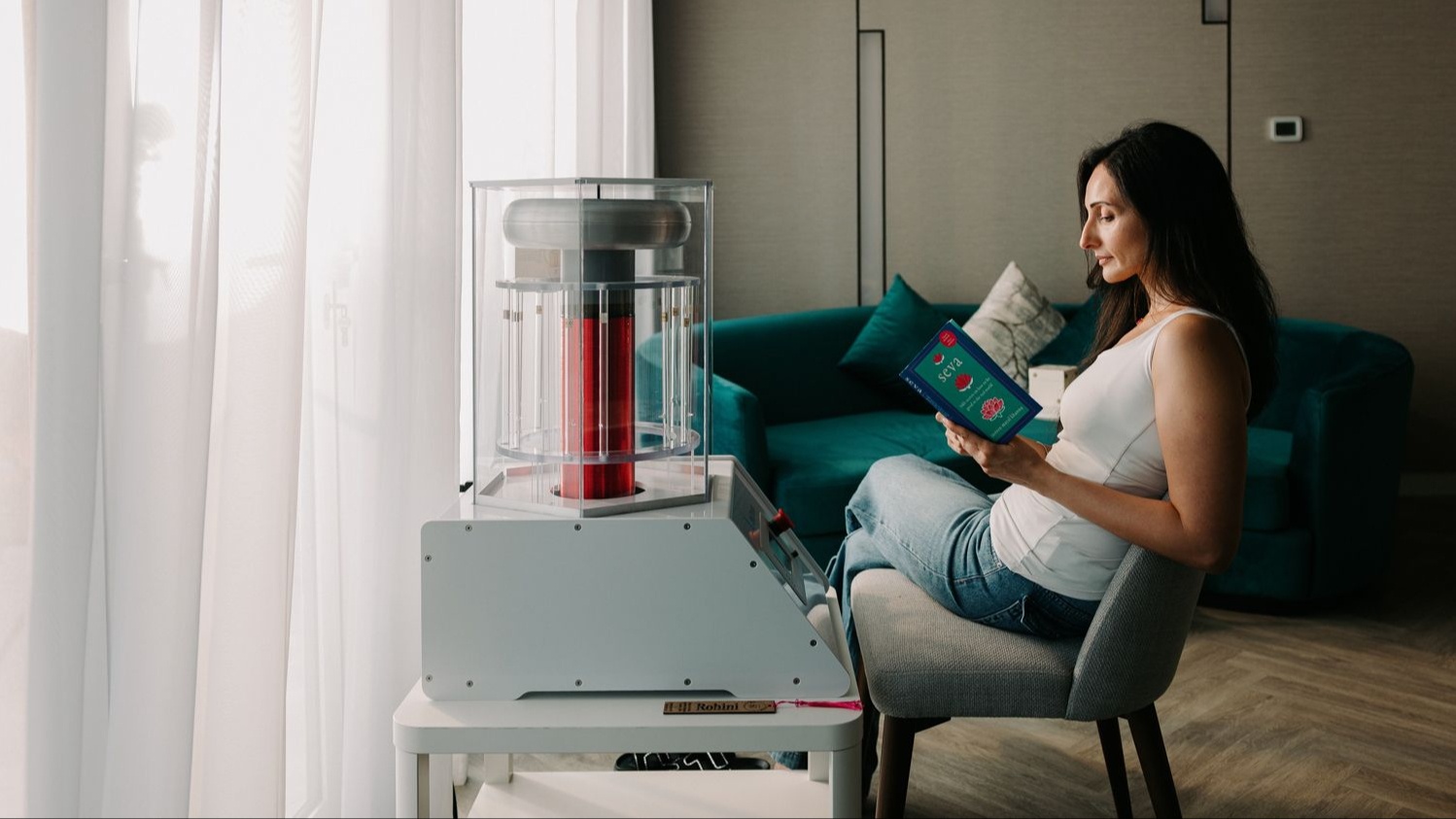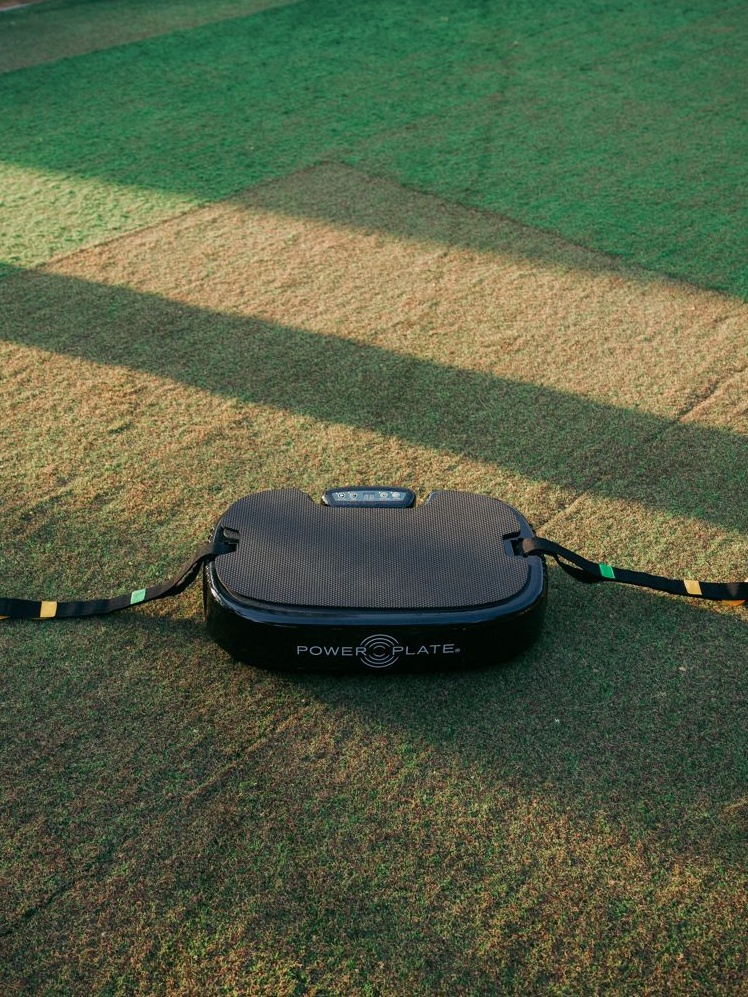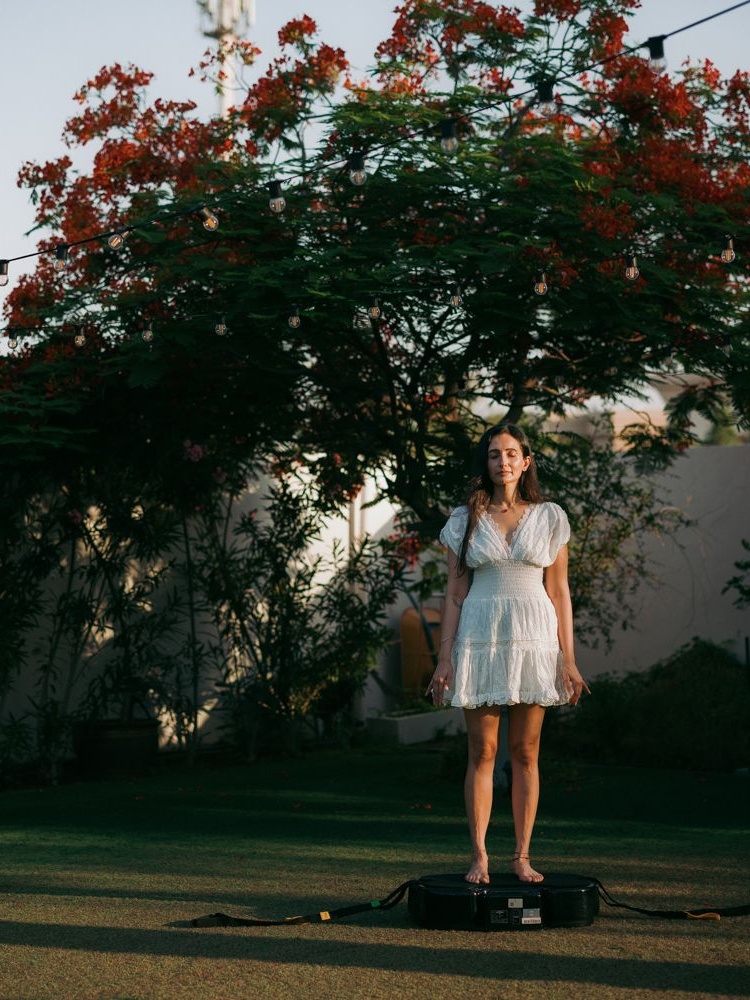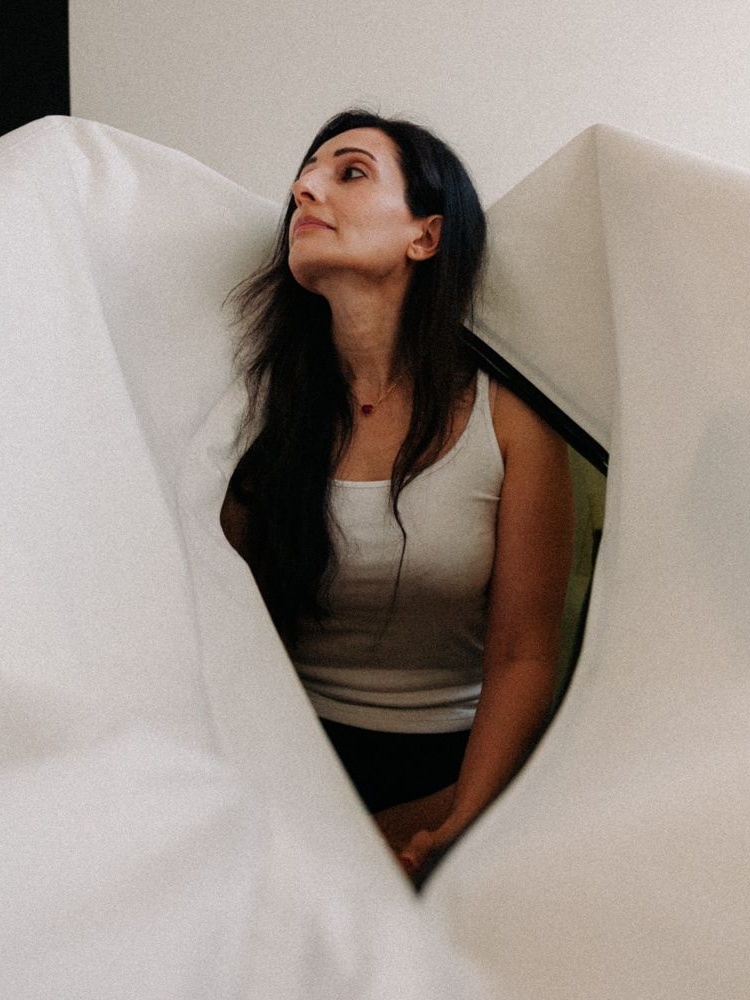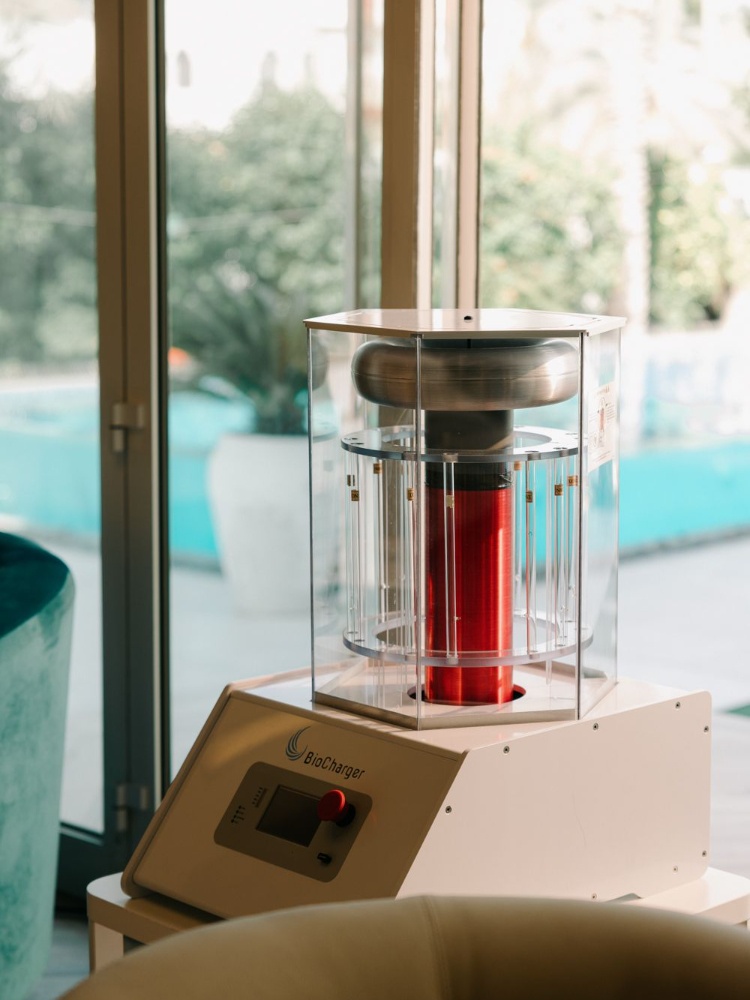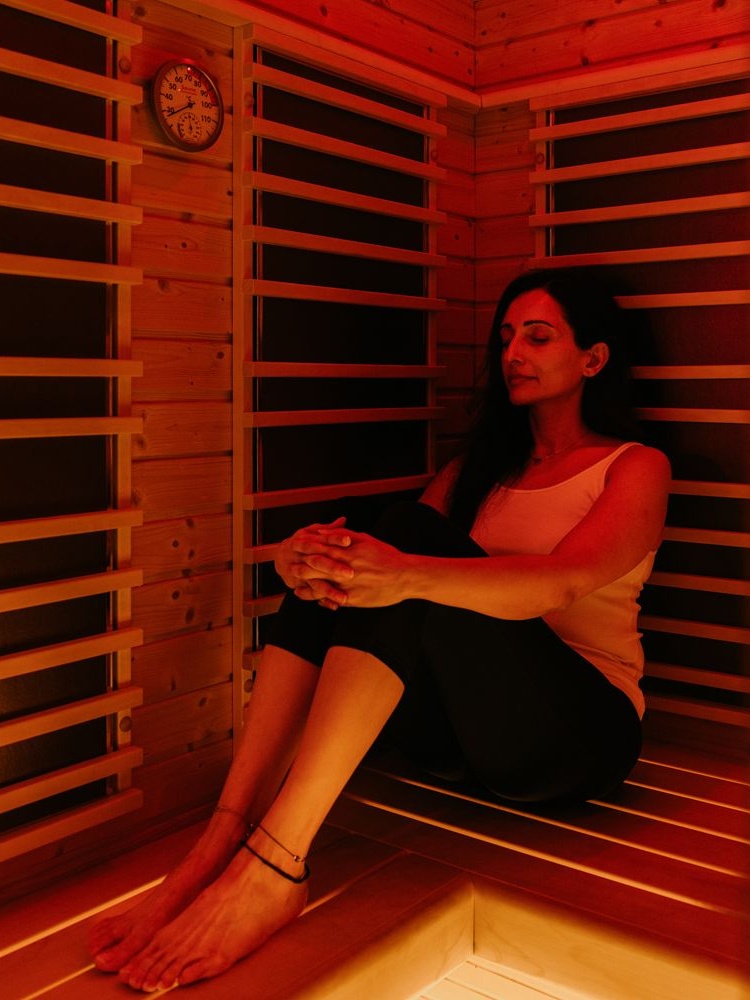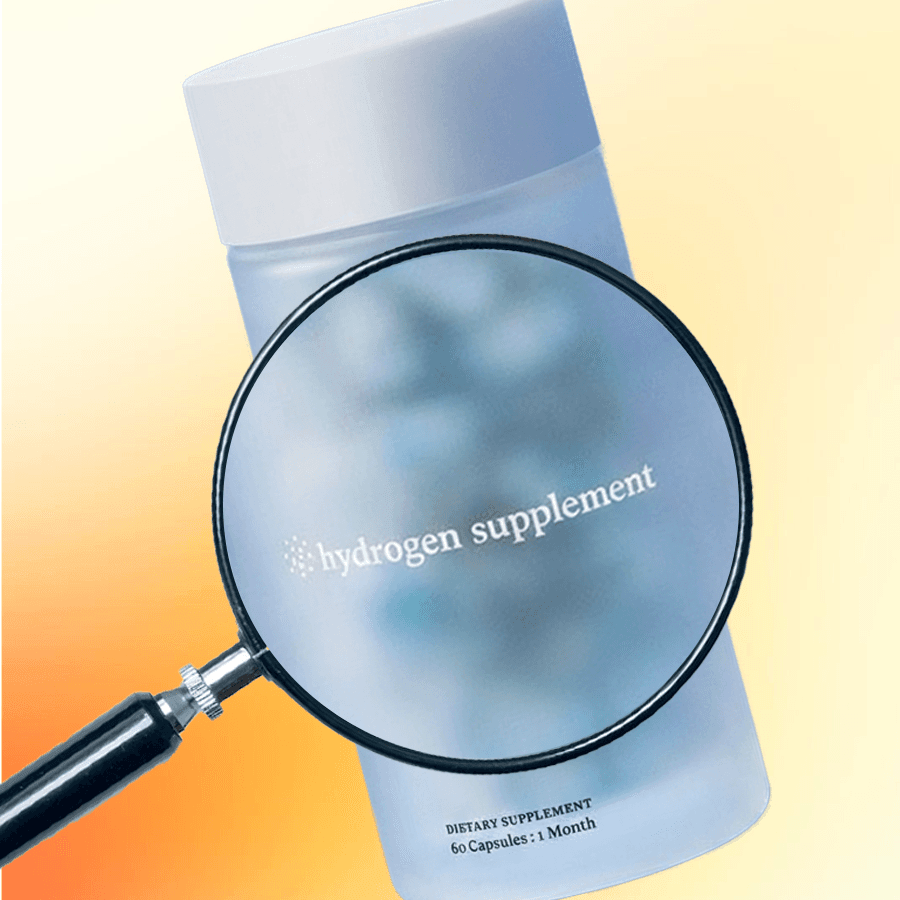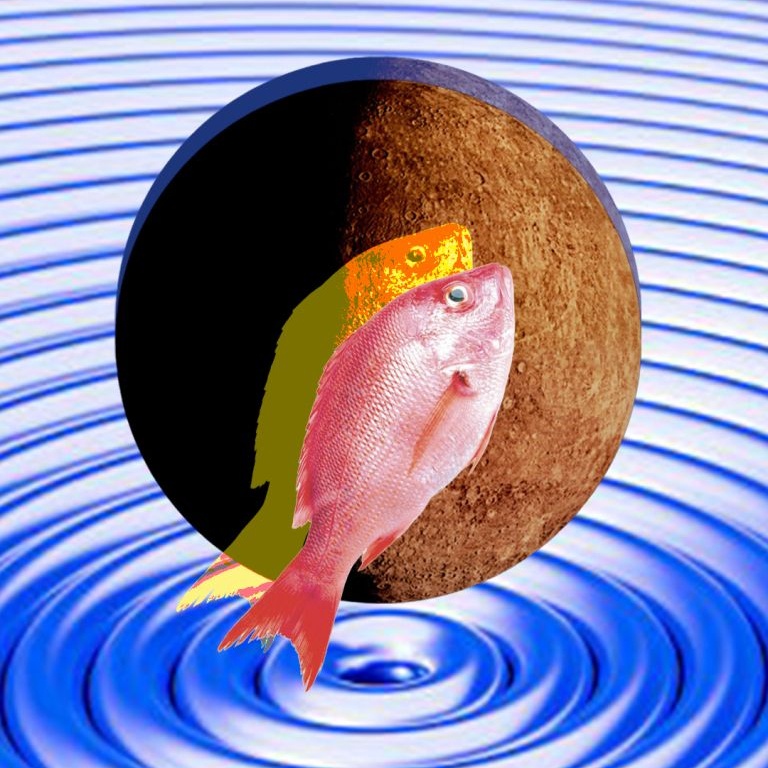It’s 9 am on a Wednesday in Dubai. Rohini Gehani, 42, has just seen her boys off to school and is settling down to start her day. But it’s not just the usual breakfast-workout-work routine. Because for Gehani and her family, which includes her entrepreneur husband Vivek (51) and sons Rajveer (18) and Viraaj (13), their home is built around a buzzy new trend that seeks to enhance their body and overall life. A veritable biohacking hub, the space doesn't boast of Eames chairs or Art Deco furnishings, but rooms that accommodate a hyperbaric chamber, massage guns, an infrared sauna for detoxification, a power plate and BioCharger to boost energy, an ice bath for after workout, and red-light therapy for muscle recovery.
In February this year, her older son severely injured his ankle, and his doctors were convinced it would take four to six weeks to heal. “This meant he’d have to miss playing the last basketball match of the season—he was gutted,” recalls Gehani. For two weeks, she made him sit in the oxygen chamber at home for an hour while he studied for his exams, in addition to strapping on a red light around the damaged area for a few minutes daily. “He was totally fit to play,” she shares, recalling how she had remained unfazed through this period.
On most days Gehani has a cure close at hand. At times when she struggles to get sleep, she doesn't need to reach out for a pill. Instead, she sits in front of her BioCharger, puts in the sleep recipe (BioChargers have recipes for different issues), and is ready to hit the sack within minutes.

Rohini Gehani in her hyperbaric oxygen chamber at home
In spite of the paraphernalia that surrounds her, Gehani’s approach to biohacking is still quite far from those of biohacking extremists who are known for their strict protocols. Instead, she has adopted a more relaxed and accessible approach. Her day begins with a simple ritual—a cup of hot lemon water to break her 12- to 14-hour overnight fast. “It’s great for a metabolic rate increase and your digestive system, is anti-inflammatory and also amazing for the skin,” she says. This is followed by a meal of porridge packed with nutrient-dense ingredients like nuts, seeds, maca powder, collagen, and cacao powder. “I’m a creature of habit,” she says, “So I have the same thing every day; even if I’m travelling. Then I might have a coffee and a celery juice before heading to my workout.” Where the average person might sip on a bottle of regular water to stay hydrated, she opts for electrolyte and hydrogen water. “I use a hydrogen bottle [the generator in the bottle splits the water into two parts hydrogen and one part oxygen] as hydrolysed water helps you absorb nutrients better,” she explains. “Adding hydrogen to the water also increases its anti-inflammatory properties and energy, and improves muscle recovery after a workout—it’s a tool that my husband and I are currently enjoying.”

A peek inside the Gehani's supplement shelf
Coined in the early 2000s by Silicon Valley entrepreneur, Dave Asprey, the term ‘biohacking’ gained popularity when his Bulletproof coffee went viral. This butter-infused coffee, designed to boost energy levels, paved the way for a wide array of lifestyle practices ranging from simple sleep journalling to more complex treatments like oxygen therapy and even human augmentation through device implantation.
Another notable, some would say controversial, figure in the biohacking world is technology entrepreneur Bryan Johnson, who has made headlines with his ambitious Blueprint project. Using this US$2-million-a-year anti-ageing “algorithm”, Johnson aims to restore his biological age to that of an 18-year-old (he is 46). With a dedicated team of doctors overseeing his journey, he famously adheres to a strict dietary regimen, eating his final meal of the day at 11 am and always sleeping alone for optimal recovery. Beyond these lifestyle modifications, Johnson takes an astounding array of over 100 supplements every day. He regularly undergoes an extensive range of cutting-edge tests and experimental treatments, including blood plasma transfusions, penis shockwave therapy, collagen-inducing micro-needling, and anti-inflammatory LED light therapies.
While there is a huge difference in approaches, from basic healthy practices to extreme treatments, the core principle of biohacking remains the same: the pursuit of physical and mental optimisation.
Gehani’s interest in the trend began in 2016, after her grandmother was diagnosed with Alzheimer’s, and took root in 2020 after her subsequent health decline. “I saw this woman—who was a powerhouse, the matriarch of the family—regressing. She's in India, so we don’t even live together, but her rapid cognitive decline had an impact on us all.” This drove Gehani to find out as much as possible about the condition, which in turn, led her to the world of biohacking. She educated herself on it and attended various conferences around the globe, such as the Dave Asprey conference and the Health Optimisation Summit. “I immersed myself in the lifestyle and many of the findings I encountered were backed by scientific evidence.”
